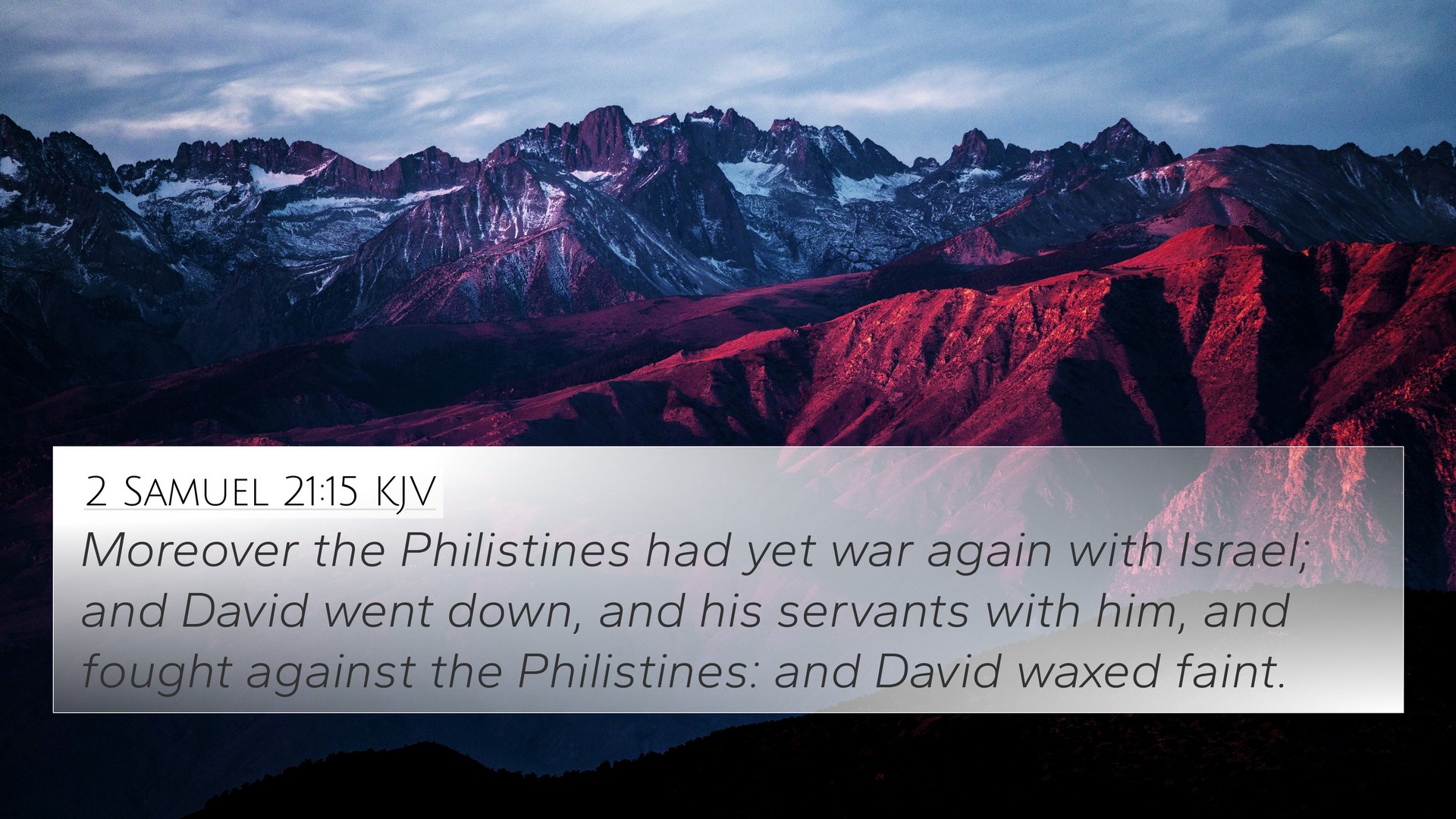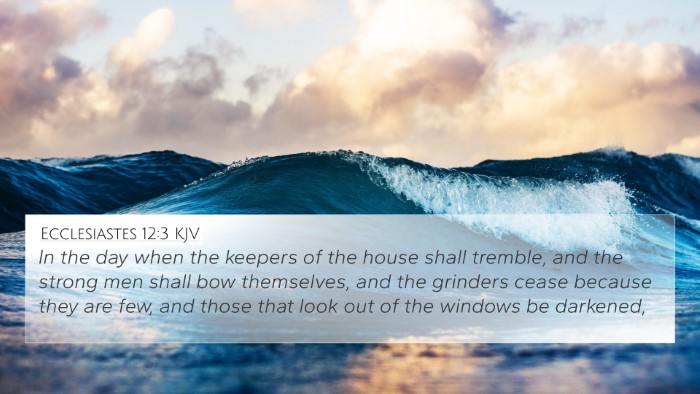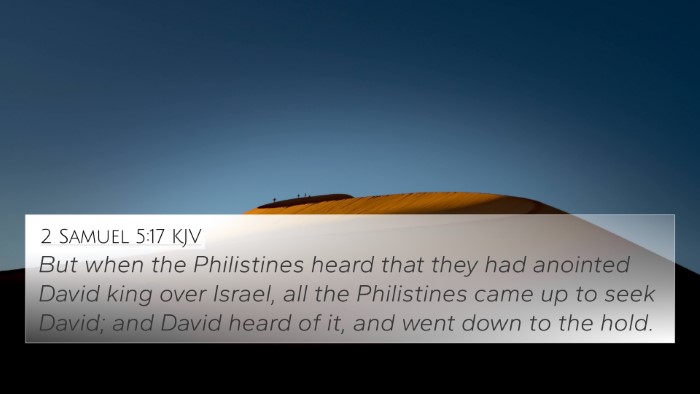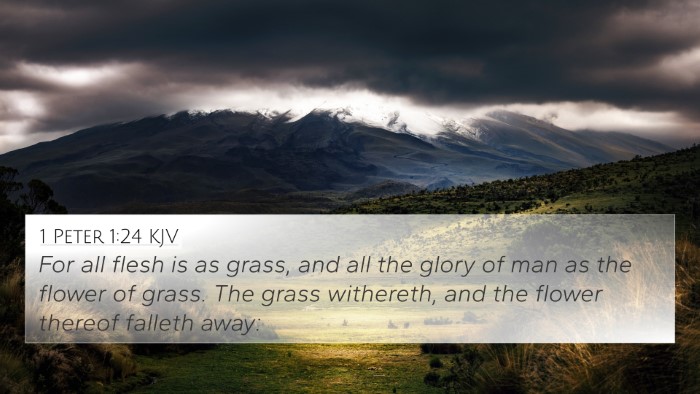Understanding 2 Samuel 21:15
Verse: "The Philistines were at war again with Israel; and David went down with his servants, and fought against the Philistines. And David grew faint."
Summary of Meaning
This verse presents a moment in which King David engages in battle against the Philistines, indicating both his leadership role and a physical struggle as he grows faint. It reflects the ongoing conflict between Israel and the Philistines, pointing to themes of perseverance amidst trials and the toll of leadership.
Commentary Insights
- Matthew Henry: Henry emphasizes the persistence of David in battle, noting that despite his exhaustion, he remains committed to defending his people. He also parallels this struggle with spiritual battles faced by believers.
- Albert Barnes: Barnes highlights the significance of David's leadership role and the dangers that come with it. He reflects on how even the strongest leaders can feel vulnerable and weary, reinforcing the idea that reliance on God is crucial.
- Adam Clarke: Clarke offers a historical perspective, reminding readers of the Philistine threat throughout Israel's history. He underscores the importance of remembering past victories and God's faithfulness in providing strength during challenges.
Thematic Connections
This verse ties into various themes found throughout the Bible, including:
- The struggle against enemies: David's repeated encounters with the Philistines suggest a continual spiritual and physical war, reminding us of spiritual warfare in Ephesians 6:12.
- The burden of leadership: The exhaustion of David can be connected to the challenges faced by spiritual leaders, as seen in Exodus 17:10-13 when Moses grows weary.
- Reliance on God's strength: David’s faintness highlights the need for divine assistance, paralleling Philippians 4:13 where strength comes through Christ.
Related Bible Cross-References
- 1 Samuel 17:45-47: David's victory over Goliath demonstrates God’s deliverance and strength in battle.
- 2 Samuel 11:1: An example of David’s earlier military campaigns and their implications for leadership.
- Psalms 68:1: A psalm of David reflecting on God arising against enemies.
- 2 Timothy 4:7: Paul’s testimony of fighting the good fight reflects the same perseverance seen in David.
- Hebrews 12:1: The concept of running the race with endurance parallels David’s effort and struggle.
- Isaiah 40:29: God gives strength to the weary, reinforcing the need for reliance on Him.
- 1 Corinthians 9:24: The analogy of a race is akin to David’s battles and the call for discipline.
Tools and Methods for Bible Cross-Referencing
To deepen your understanding of connections between Bible verses, consider the following:
- Bible Concordance: A vital tool for finding specific verses and their occurrences in different contexts.
- Bible Cross-Reference Guide: Helps to identify links between verses for thematic studies.
- Cross-Reference Bible Study: An effective method for uncovering more profound scriptural truths by studying related passages.
- Comprehensive Bible Cross-Reference Materials: Utilize resources that offer extensive lists of verse connections.
- Identifying Connections: Focus on underlying themes to connect Old and New Testament scriptures meaningfully.
Practical Application of Cross-Referencing
Using the insights from 2 Samuel 21:15, consider how you can apply these verses in personal devotion:
- How to find cross-references: Start with a verse that resonates with you and use a concordance to explore its connections.
- Posts on similar themes: Explore how the struggles of David encourage modern believers facing their own battles.
- Cross-referenced themes: Analyze how God’s strength is a consistent theme throughout scripture, illustrating His assistance in trials.
Conclusion
In examining 2 Samuel 21:15, we find valuable lessons on leadership, the importance of divine strength, and how to draw connections between various scriptures. Through tools like concordances and thematic studies, one can gain a deeper understanding of God’s Word and its application in our lives.














